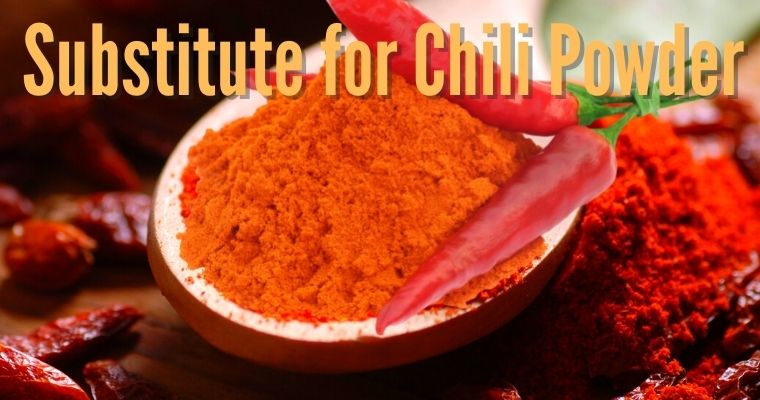Last Updated on February 1, 2024
Garlic, a staple in culinary traditions worldwide, offers robust flavors and diverse forms, notably garlic powder and garlic salt. While both ingredients originate from garlic, their uses, flavor profiles, and impacts on dishes vary significantly. This post delves into the intricate differences between garlic powder and garlic salt, guiding cooks and food enthusiasts in their culinary ventures. By understanding these distinctions, one can elevate their cooking, perfectly balancing flavors and textures in a variety of dishes.
Differences in Flavor and Intensity
The primary difference between garlic powder and garlic salt is their flavor intensity and composition. Garlic powder is highly concentrated, delivering an intense garlic flavor that is essential in dishes where a strong garlic presence is desired. It’s perfect for marinades, rubs, and spice blends. On the contrary, garlic salt offers a more subdued garlic taste due to its dilution with salt. This makes it ideal for seasoning where a gentler garlic flavor is needed, without overpowering other ingredients. However, the high salt content in garlic salt can be a drawback for those monitoring their sodium intake. Understanding these flavor nuances is crucial for chefs and home cooks, ensuring that each dish is perfectly seasoned.
Composition and Ingredients
Garlic powder and garlic salt are two popular ingredients in kitchens worldwide, each with its unique composition. Garlic powder is made from dehydrated garlic cloves, ground into a fine powder. This process preserves the strong, pungent flavor of fresh garlic, offering a concentrated taste that is versatile in cooking. Its composition is pure garlic, with no additives, providing a robust garlic flavor in a convenient, long-lasting form. In contrast, garlic salt is a mixture of garlic powder and salt, typically in a ratio of one part garlic powder to three parts salt. This blend combines garlic’s flavor with salt’s seasoning properties, making it a dual-purpose ingredient. The presence of salt dilutes the intensity of the garlic flavor, making it a milder option compared to pure garlic powder. It’s essential to consider this blend when using garlic salt in recipes, as it contributes flavor and sodium to dishes.
Culinary Uses and Applications
The culinary uses and applications of garlic powder and garlic salt vary, making each suitable for different cooking scenarios. Garlic powder is highly versatile and can be used in almost any dish that calls for fresh garlic. Its fine texture allows it to blend well with other spices, making it ideal for dry rubs, marinades, and seasoning blends. Its concentrated flavor is perfect for adding a robust garlic taste to soups, sauces, and meat dishes. Garlic powder is also a staple in many ethnic cuisines, from Italian to Indian, providing a convenient way to impart garlic flavor without the hassle of peeling and chopping cloves.
Garlic salt, on the other hand, is primarily used as a seasoning. It’s excellent for dishes where both garlic flavor and saltiness are desired, such as in savory baked goods, popcorn, and grilled meats. Due to its salt content, it’s often used sparingly to avoid oversalning a dish. Garlic salt is particularly useful in quick-cooking dishes where blending flavors rapidly is key. It’s also a popular choice for sprinkling on finished dishes, like vegetables, to add a final touch of garlic-scented seasoning.
Health Considerations
When considering health aspects, garlic powder and garlic salt have distinct profiles. Garlic powder, being pure dehydrated garlic, retains many of the health benefits associated with fresh garlic. It’s low in calories and rich in nutrients like manganese, vitamin B6, and vitamin C. Garlic has been known for its potential health benefits, including improving heart health, reducing blood pressure, and possessing anti-inflammatory properties. Since garlic powder is concentrated, these benefits can be obtained even in small amounts.
Garlic salt, however, requires a more cautious approach due to its high sodium content. While it provides the same garlic-derived benefits, the added salt can contribute to increased sodium intake. High sodium consumption is associated with health risks, including hypertension and cardiovascular diseases. Therefore, garlic salt should be used in moderation, especially for individuals with salt-sensitive conditions or low-sodium diets. Opting for garlic powder can be a healthier alternative for those looking to reduce their salt intake while still enjoying the flavor of garlic in their meals.
Garlic Powder Vs. Garlic Salt: Making the Right Choice for Your Recipes
When it comes to adding flavor to your dishes, the choice between garlic powder and garlic salt is more significant than you might think. Garlic powder is made from dehydrated, ground garlic cloves, offering a pure, intense garlic flavor. It’s incredibly versatile, suitable for a wide range of cuisines and recipes. Its concentrated nature means a little goes a long way in imparting a robust garlic essence. This makes it ideal for dishes where you want a strong garlic punch without the moisture of fresh garlic.
On the other hand, garlic salt is a blend of garlic powder and salt, typically in a ratio of 1 part garlic powder to 3 parts salt. This combination offers the convenience of two seasonings in one. However, it’s important to adjust the amount of additional salt in your recipe to account for the salt content in garlic salt. It’s perfect for dishes that require both seasoning and a hint of garlic, like roasted vegetables, marinades, or grilled meats. The key is to consider the balance of flavors in your dish: for a pronounced garlic taste, opt for garlic powder, but for a more subtle garlic flavor with seasoning, garlic salt is your go-to.
Conclusion
In summary, both garlic powder and garlic salt have their unique places in the kitchen. Choosing between them depends on the flavor profile you’re aiming for and the specific requirements of your recipe. Garlic powder is ideal for those who want a strong, pure garlic flavor without the added salt, making it a great choice for garlic-forward dishes and for those watching their sodium intake. Meanwhile, garlic salt is a convenient combo that works well in recipes where you typically add both salt and garlic, saving time and simplifying seasoning.
Ultimately, the decision between garlic powder and garlic salt comes down to personal preference and the needs of the dish you’re preparing. By understanding the characteristics of each, you can make an informed choice that enhances the flavor of your meals. Remember, cooking is as much about experimenting with flavors as it is about following recipes, so don’t hesitate to try both and see which one best suits your culinary style.



